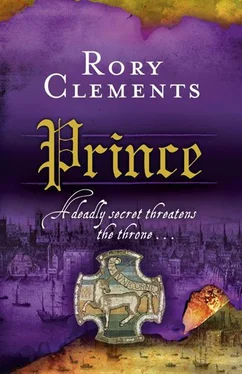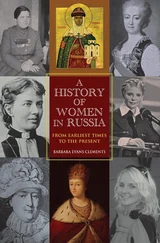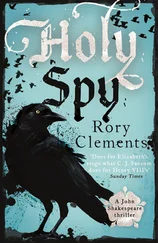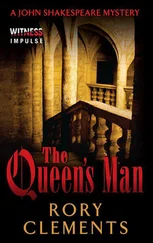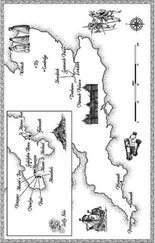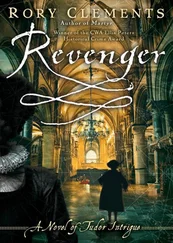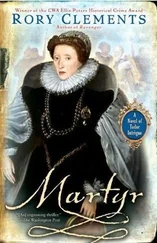Rory Clements - Prince
Здесь есть возможность читать онлайн «Rory Clements - Prince» весь текст электронной книги совершенно бесплатно (целиком полную версию без сокращений). В некоторых случаях можно слушать аудио, скачать через торрент в формате fb2 и присутствует краткое содержание. Жанр: Исторический детектив, на английском языке. Описание произведения, (предисловие) а так же отзывы посетителей доступны на портале библиотеки ЛибКат.
- Название:Prince
- Автор:
- Жанр:
- Год:неизвестен
- ISBN:нет данных
- Рейтинг книги:5 / 5. Голосов: 1
-
Избранное:Добавить в избранное
- Отзывы:
-
Ваша оценка:
- 100
- 1
- 2
- 3
- 4
- 5
Prince: краткое содержание, описание и аннотация
Предлагаем к чтению аннотацию, описание, краткое содержание или предисловие (зависит от того, что написал сам автор книги «Prince»). Если вы не нашли необходимую информацию о книге — напишите в комментариях, мы постараемся отыскать её.
Prince — читать онлайн бесплатно полную книгу (весь текст) целиком
Ниже представлен текст книги, разбитый по страницам. Система сохранения места последней прочитанной страницы, позволяет с удобством читать онлайн бесплатно книгу «Prince», без необходимости каждый раз заново искать на чём Вы остановились. Поставьте закладку, и сможете в любой момент перейти на страницу, на которой закончили чтение.
Интервал:
Закладка:
Boltfoot grunted. ‘What of the Royal Armoury itself, master? There is gunpowder aplenty there.’
‘I am assured from the highest level that it is not the source. If all else fails I will go there. But in the meantime I have other inquiries to make. Set forth at dawn — and go armed.’
In bed, Catherine was tender. She enticed him in with soft words and practised movements of her belly and thighs, but tonight Shakespeare was a different animal to her, frenzied and ungiving, hard and dispassionate.
They made love twice. Her yielding warmth soothed him and her fondling words and whispered kisses drew much of the anger out of him. Yet there was still tension there, and she sensed it.
He lay back, sated, on the downy cushions and gazed into the black night. Their breathing subsided.
‘I keep thinking of Poley,’ he said. ‘I know him too well. Marlowe’s death smells like six-day fish.’
‘Tell me of him, John.’
‘No. You need sleep.’
They lay there a minute. Neither of them would sleep soon.
‘Death and deceit follow him like a pair of hungry dogs,’ Shakespeare said quietly. ‘Walsingham used him to incriminate the Babington plotters in their conspiracy to murder the Queen and free Mary of Scots. But whose side was he really on? I never knew. I don’t think Mr Secretary was certain either. Even when Poley was imprisoned in the Tower, it is said he was employed to kill a bishop with poisoned cheese. But who was the paymaster?’
Catherine curled up against him, her dark hair across his chest. Shakespeare stroked her head.
‘Is he Catholic or Protestant, or neither?’ he went on, as much to himself as to her. ‘He was poor but now he lives in splendour, though he has no honest trade. I think he has won gold from all sides. What is his connection to Marlowe — a shared interest in intelligencing or the common bond of coining?’
‘Coining, John?’
‘Marlowe had already been implicated in forging coin in the Low Countries; is Poley in the same line? Is that what this is about? Was the widow Bull’s room a den of counterfeiters? Was the death nothing but a falling-out among thieves? A brabble and brawl about the proceeds of some crime? Or something yet more sinister…’
He knew Catherine was happy to hear him out. She would employ her wit and learning to make some sense of all he said. These were the times when they were at their closest, when they worked as confederates to solve a puzzle.
Yet not this night. A sudden noise shattered their peace. It came from the street outside their chamber. A splintering of wood, then shouting and hammering.
Shakespeare was up from the bed in a second and throwing open the shutters to look out of the window down on to the road. There were men there with pitch torches, storming through the broken front door of his neighbour’s house.
Catherine was up, too, at his side. ‘What is it, John?’
‘Pursuivants.’
Quickly, he threw on his doublet over his bare chest and pulled on breeches. ‘Stay here, Catherine.’
Barefoot, he ran down the oaken stairs, through the hall, into the courtyard and out into Dowgate. Two armed men with torches were now standing guard outside the neighbouring house. The building was older than the Shakespeares’ home and almost as large. It was a stone-built city home for merchants and dated back a hundred years or so. Most recently, it had come into the possession of a wool merchant from Antwerp. They seemed good people who doffed their hats in the street and said good day in strongly accented English, and yet he did not know their names nor anything about them, save that they seemed wealthy and respectable.
There was shouting from within the house. Shakespeare marched up to the front door and saw that it had been stove in by a battering log, for it was lying flat in the hallway.
‘What is this? What has happened here?’ he demanded of the guards as he tried to peer inside.
‘Hunting for rats,’ one of the men said, dourly. He held a drawn sword. ‘What’s it to you?’
Shakespeare noted the Queen’s escutcheon emblazoned on the man’s jerkin. ‘I am an officer to Sir Robert Cecil and these people are my neighbours, that is what it is to me. Now let me pass.’ He stepped forward. As he did so, out of the corner of his eye, he noticed a figure a little way down the street, sheltering in the shadow cast by the wall of the house.
The two men moved across Shakespeare’s path to bar his way. He elbowed them aside and pushed on through the front door. They laughed, but did not try too hard to stop him. Inside, the hall was ablaze with the flickering light of pitch torches and candles. Richard Topcliffe was sitting in the centre of the room on a coffer of polished elm, one leg swinging, his pipe stuck in his mouth, belching out smoke.
To one side of the room, Shakespeare saw the family who lived here. Father, mother and six children aged from about five to fifteen. They were all in their nightclothes and stood rigidly to attention, frightened witless.
‘Well, well, Mr Shakespeare. What a pleasure to see you here,’ Topcliffe growled like an undomesticated cat. He had a sheaf of papers in his hand. ‘Come to help me flush out vermin, have you?’
On the other side of the room stood a line of serving men and women, half a dozen in all. Two were in livery, the others in nightclothes like their master’s family.
‘What are you talking about, Topcliffe?’
‘This is Mr Sluyterman, according to the Return of Strangers here.’ Topcliffe ran his finger down a list of names. ‘Mr Jan Sluyterman. Says he has a wife, Gertrude, which I take to be that ugly oyster-wench at his side, and six children — Cornelius, another Jan, Pieter, Willem, Marthe and Jacob. Says, too, that he has six servants, three of them English and three Dutch.’ Topcliffe turned to the master of the house. ‘Is that all correct, Mr Sluyterman?’
Topcliffe had two heavily armed pursuivants at his side. These agents of the state, with powers of search and arrest, brandished swords and wheel-lock pistols. From other rooms came the sound of stamping boots and smashing panels. Obviously, there was a cohort of other men spread around the house, searching for someone — or something.
‘ Ja — yes, sir. It is correct. But-’
‘Shut your filthy Dutch mouth, Mr Sluyterman. I will tell you when I wish you to speak.’
‘But I thought you asked-’
‘I don’t like your Dutch voice, I don’t like your Dutch whore of a wife and I don’t like you, Sluyterman, so stow you before I force my blackthorn down your miserable gullet. Are you Calvinists? Her Majesty the Queen does not like Calvinists and nor do I.’
Shakespeare could tell from Sluyterman’s eyes that he was concealing something. The Dutchman looked at Topcliffe with a steady, nervous gaze as if afraid that averting his eyes would confirm his guilt. He was a well-fed man in his forties. He looked as though he had never done anything more physical than lift a quill, write in a ledger and count coin. His wife was attractive in a homely, plump way, with a white lawn coif about her hair. Her children, all standing like statues with their arms at their sides, wore white linen nightcaps and long linen gowns.
‘You question the servants, Shakespeare. You see if they’re English or Dutch.’
‘Do your own dirty work, Topcliffe. These are human beings, not vermin.’
‘As you wish.’ Topcliffe jumped from the coffer with a nimbleness that belied his sixty years. Clenching his pipe in his teeth, he approached the line of servants, swinging his silver-tipped blackthorn. One by one, he prodded them in the belly and demanded, ‘Name, position, place of birth?’ One by one, in quivering voices, they told him their names, outlined their duties and told him where they came from. It seemed they all knew Topcliffe by repute, for they looked at him as a rabbit might view a fox that had it cornered. All but one, Shakespeare noted. One of the English servants, a man of about thirty in nightclothes, seemed not so afraid. He and two others spoke clear English devoid of any foreign accent. The other three spoke enough English, but were obviously from the Low Countries.
Читать дальшеИнтервал:
Закладка:
Похожие книги на «Prince»
Представляем Вашему вниманию похожие книги на «Prince» списком для выбора. Мы отобрали схожую по названию и смыслу литературу в надежде предоставить читателям больше вариантов отыскать новые, интересные, ещё непрочитанные произведения.
Обсуждение, отзывы о книге «Prince» и просто собственные мнения читателей. Оставьте ваши комментарии, напишите, что Вы думаете о произведении, его смысле или главных героях. Укажите что конкретно понравилось, а что нет, и почему Вы так считаете.
